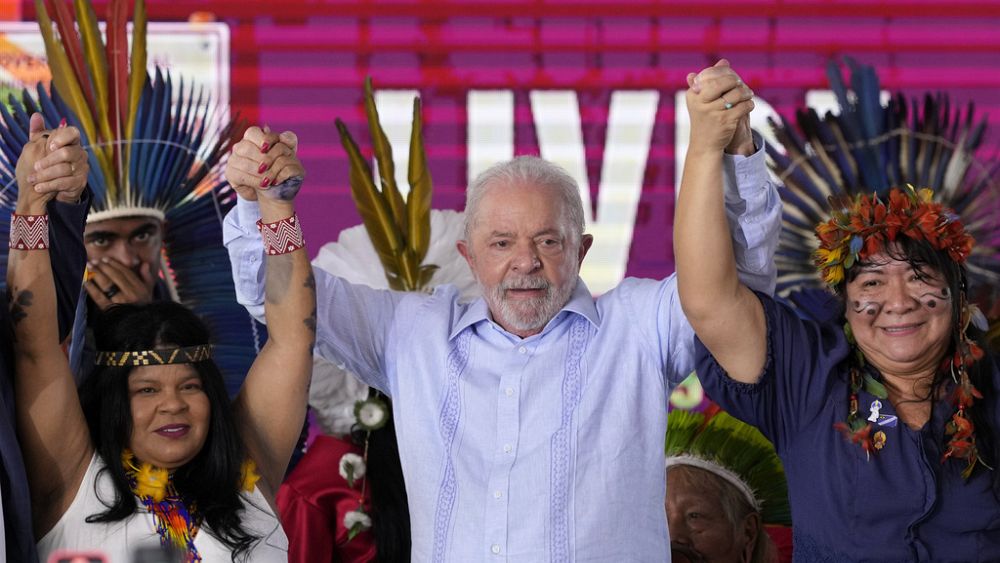Brazil’s Lula recognises 1,200 square km of Indigenous land

Brazil has recognised six Indigenous areas, most of which are in the threatened Amazon rainforest.
Brazil has granted official recognition of nearly 1200 square kilometres of Indigenous lands, most of it in the Amazon. The move by President Luiz Inácio Lula da Silva on Friday seeks to safeguard critical rainforests from the unchecked exploitation that marked his predecessor’s administration.
The land remains under the federal government’s jurisdiction, but the designation grants Indigenous peoples the right to use it in their traditional manner. Mining activities are prohibited, and commercial farming and logging require specific authorizations. And non-Indigenous people are forbidden from engaging in any economic activity on Indigenous lands.
Kleber Karipuna, the executive coordinator at the Indigenous people’s organisation Apib, called it a welcome shift after four years of threats and invasions targeting Indigenous territories under Jair Bolsonaro.
“For us, it is a very significant process of restarting,” he said.
“Of course, there are still other lands that can be advanced.”
The Amazon rainforest, covering an area twice the size of India, holds tremendous amounts of carbon and is a crucial buffer against climate change. Studies have shown that Indigenous-controlled forests are the best-preserved in the Brazilian Amazon.
But deforestation surged to a 15-year high during the Bolsonaro years, with destruction largely caused by illegal miners and land robbers. Destruction in the eastern Amazon has been so extensive that it has become a carbon source, rather than a carbon sink.
The designations granted Friday don’t assure protection for the rainforest, with Bolsonaro allies still in charge of a majority of Amazon states. But Lula has shown a willingness to back up his rhetoric with action. In February, armed government officials began ejecting illegal gold miners from Yanomami Indigenous territory in the northwest corner of Brazil’s Amazon.
The six newly recognised territories amount to an area larger than Los Angeles and New York City combined. Lula announced it to a chanting crowd at the Free Land Camp, an annual weeklong encampment of Indigenous people in the capital of Brasilia that includes hundreds of tents on the main esplanade with Indigenous people of various ethnicities gathering to dance, sing, sell handicrafts and hold political demonstrations.
“We are going to legalise Indigenous lands. It is a process that takes a little while because it has to go through many hands,” Lula said. “I don’t want any Indigenous territory to be left without demarcation during my government. That is the commitment I made to you.”
For some Indigenous people, Friday’s announcement was disappointingly small. The country has 733 territories with cases for demarcation pending before the federal government; the newly recognised territories accounted for just six per cent of that number, according to the nonprofit Socio-Environmental Institute.
In January, Lula’s government had pledged to create 14 new territories in the short term.
